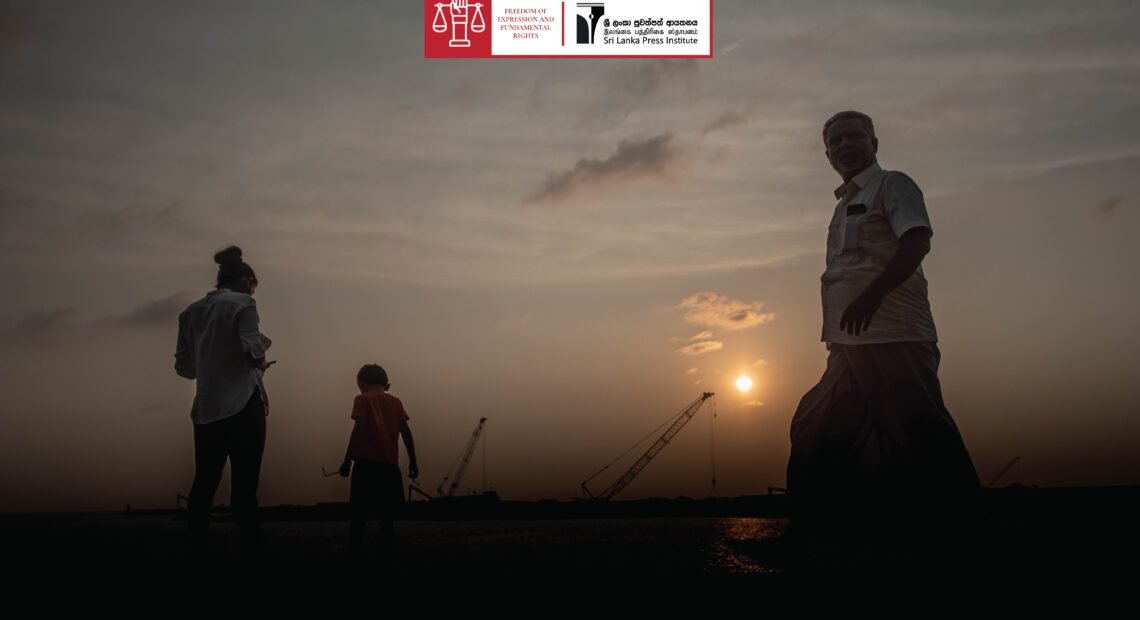
The Port City: Judgement, Democracy and Reconciliation
C.J. Amarathunga
Many agree that the judgment delivered by the Supreme Court of Sri Lanka regarding the fundamental rights petitions on the Colombo Port City Economic Commission Bill is crucial and historic. However, many people consider the judgment also paved the way to safeguard the independence and state integrity. However, most of us miss the far more important fact that the judgment reinforced society’s biases around democracy and reconciliation. It reassured the rule of law, peace, and co-existence.
The Supreme Court was assigned a crucial but minimal task regarding the Port City Bill. It was to examine the bill’s constitutionality and recommend the actions to pass any section that is not constitutional.
Nineteen petitions had been filed against the Colombo Port City Economic Commission Bill. They requested the Supreme Court to rule that the bill or certain sections of the bill violate the constitution and recommend a two-thirds majority vote in the parliament and a simple majority in a referendum to pass them.
The Supreme Court judgment received by the Speaker was presented to the parliament on May 18th. Accordingly, 25 articles were found to be not in line with the constitution, whereas nine sections violated sovereignty. Those articles needed a two-thirds majority vote in the parliament and a simple majority in a referendum to pass them, while the 16 other articles needed to be passed by a two-third majority in the parliament.
The judgment mentioned the amendments needed for the articles to conform with the constitution. The government agreed to amend the bill, and many of the adverse characteristics of the act were thus removed.
Opposition MP Dr. Harsha de Silva gaily said that the Supreme Court had hammered the bill out. The judgment is significant due to removing parts detrimental to the country’s integrity and sovereignty.
Some also discussed that the Supreme Court had reassured its independence and displayed it through this judgment. People’s trust in the judiciary is an essential factor in terms of democracy. The rule of law is one of the significant features of a democratic society. People elect their leaders in such a society, and the foundation of the law system is the constitution.
Division of power through the constitution to the executive, legislative and judicial is another vital principle. They are the three central pillars of a healthy democracy. They must function independently of each other while one power must not undermine another.
All powers were accumulated to the king before democracy evolved. The royal system did not have checks and balances regarding the king’s conduct. The violent mutiny was widespread in pre-democratic societies; some were people’s revolts, while the others were conspiracies on the part of the royal family.
Devolution of power within the state was the main reason for minimal chaos within a democratic society. Executive, legislature or the judiciary cannot act arbitrarily, and it was one of the significant reasons for peace and reconciliation in society.
The concept of the rule of law was quite old, and historical records point out that even the kings of China under Confucius’ philosophy had to obey a legal system. Similar records are found from other ancient civilisations as well.
The Magna Carta (1215), was a document created through a settlement between King John and the noblemen. It is considered one of the first instances in history that the king’s dominance was decisively challenged. Magna Carta, which means Great Charter, created the first law that restricted the king’s discretionary powers. Although it was not highly successful since its inception, it was practiced from time to time.
Further, the world’s first democratic revolution, the French Revolution, paved the way to strengthen the concepts of devolution of power to the executive, legislature, and judiciary. Philosophers like Montesquieu and Rousseau provided the theoretical base for it. Montesquieu’s doctrine of the separation of powers and Rousseau’s concept of consensus were the foundations of democratic societies.
The problem was what replaced the king. Instead of replacing a bad king with a good king, people needed a ruling method bound to a consensus that does not allow for a ruler’s impulsive behaviour. Instead, the ruling system should maintain peace, reconciliation, and security. The separation of powers and the rule of law in a democratic society are implemented for this purpose.
People’s trust in personal safety and the safety of rights is the most important feature of such a system. This trust must be established among all sections of society: suspicion and any revolts created by them are the results of such a situation.
In Sri Lanka, the judiciary functions regarding the incidents during and after the war came under severe criticism both locally and internationally. In such a backdrop, the judiciary regaining its independence and credibility via the judgment on Colombo Port City Economic Commission Bill appeases the peace-loving polity. The impact of the judgment is more profound than it appears. It ascertains democracy and co-existence.
கொழும்பு துறைமுக நகரத்திட்ட தீர்ப்பின் வரலாற்று முக்கியத்துவம்
වරාය නගර නඩු තීන්දුව , ප්රජාතන්ත්රවාදය සහ සහජීවනය








